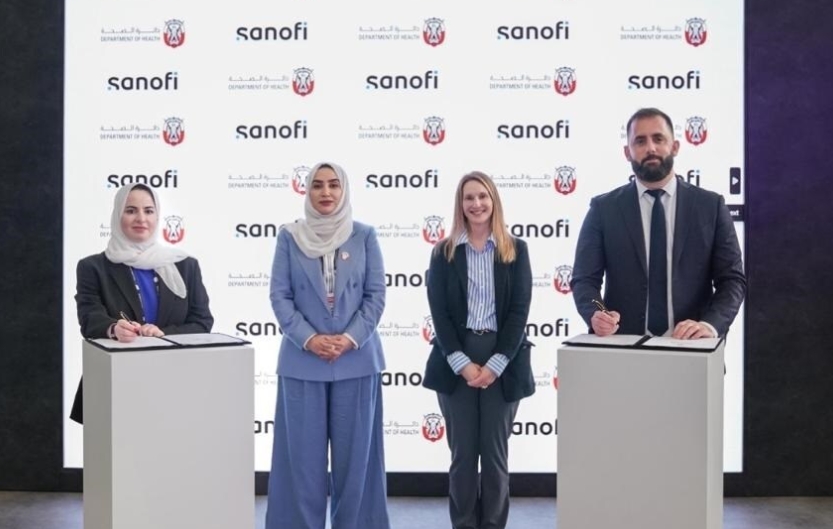
image credit- shutterstock
The Taiwan National Development Council identified the precision health industry as one of its six strategic industry priorities for its 2030 strategy. The Taiwan Precision Health Initiative (TPHI) covers three key areas: precision medicine, regenerative health, and digital health innovation.
One of the initiatives in this regard is the Taiwan Precision Medicine Initiative (TPMI) hosted by Academic Sinica and in alliance with 16 partner hospitals across the country, which has the ambition to obtain genetic profiles of 1 million patients from medical centres across Taiwan. Many healthcare databases rely heavily on data from Caucasian patients and research participants. However, predictions generated from such data may not always be accurate when applied to patients from different ethnic backgrounds. Recognising this limitation, the Taiwan Precision Medicine Initiative aims to use specific data from the Han Chinese population to enhance patient care optimisation in Taiwan.
The Precision Medicine Industry Association of Taiwan (PMIA) unveiled the ‘2023 Precision Medicine Industry Policy White Paper.’ PMIA has proposed five policies to be recommended by the government and industry based on the principles of precision medicine.
“The Taiwan government is working hard to promote it, and relevant legislation is being discussed in the Legislative Yuan. We hope that the law will be passed this year,” said Lisa Juang, Director, Finance and Administration at Taiwan Bio Therapeutics. It is a one-stop, total solution cell therapy CDMO focusing on accelerating the translation of early-stage cell therapies to clinical products.
The country has taken several initiatives and partnerships to advance precision medicines in the country. The latest development is that next-generation sequencing (NGS) tests for precision cancer therapy might be covered by the National Health Insurance (NHI). PMIA has also proposed incorporating NGS testing into the NHI to align with global policy trends, as outlined in its white paper.
Major pharmaceutical companies like AstraZeneca, Roche, and Merck are increasingly turning to Taiwan to leverage its robust data and computing capabilities for precision medicines.
Taiwan’s precision diagnostics firm, SOFIVA GENOMICS signed a Memorandum of Understanding (MoU) with global, science-led biopharmaceutical company AstraZeneca to promote awareness and improve access to Homologous Repair Deficiency (HRD) testing in Asia. Roche partnered with Taiwan’s National Health Research Institutes, committing to support the government’s creation of a clinico-genomic database of patient outcomes, to be used for follow-up analysis and to provide evidence supporting regulatory and reimbursement decisions.
Merck, a vibrant science and technology company, announced the signing of a MoU with the National Health Research Institute (NHRI) to jointly dedicate their capabilities in R&D and technology development, to strengthen the National Precision Medicine Programme targeting cancer testing and treatment, and to collaborate on enabling the 2030 Precision Health System to safeguard the wellbeing of Taiwanese citizen.
Pioneering precision diagnostics
Molecular diagnosis is a cornerstone of precision medicine, enabling the prediction of treatment effects through a comprehensive analysis of a patient's condition. This approach allows for optimal drug selection, significantly reducing the time and cost of recovery. As precision medicine becomes an international trend, testing plays a critical role in its implementation. Targeted therapies and immunotherapies for cancer often require the identification of genetic mutations through biomarker testing to pinpoint treatment targets.
Taiwan is a prominent player in diagnostics and has recently unveiled significant advancements in cancer precision diagnostics.
Lung cancer continues to be the leading cause of cancer-related deaths both globally and in Taiwan. To combat lung cancer and improve survival rates, Taiwan has taken a groundbreaking step by introducing the ‘Taiwan National Lung Cancer Early Detection Program.’ This programme aims to detect lung cancer early through low-dose computed tomography (LDCT) lung cancer screening, targeting individuals with a family history of lung cancer and those with a history of heavy smoking.
Pancreatic cancer affects 500,000 people globally each year, with over 3,000 cases in Taiwan annually. It is difficult to diagnose early due to its inconspicuous initial symptoms, so most patients are diagnosed at advanced stages. National Taiwan University Hospital (NTUH) said its pancreatic cancer team has developed an artificial intelligence (AI)-assisted model for interpreting computed tomography (CT) scans, which can detect pancreatic cancer more accurately and at earlier stages. The AI-assisted diagnosis system has obtained a Food and Drug Administration (FDA) medical device licence, a ‘breakthrough device’ designation by the US FDA, as well as several patents in Taiwan and the US.
AI is also revolutionising heart attack diagnosis and treatment. In a study at a Taiwanese hospital, AI technology combined with electrocardiogram testing reduced the time to diagnose and transfer heart attack patients to the cardiac catheterisation laboratory by about 10 minutes.
All these efforts have positioned Taiwan as a key player in the international precision medicine landscape, driving innovation and enhancing the well-being of its citizens and the world at large.
Ayesha Siddiqui




